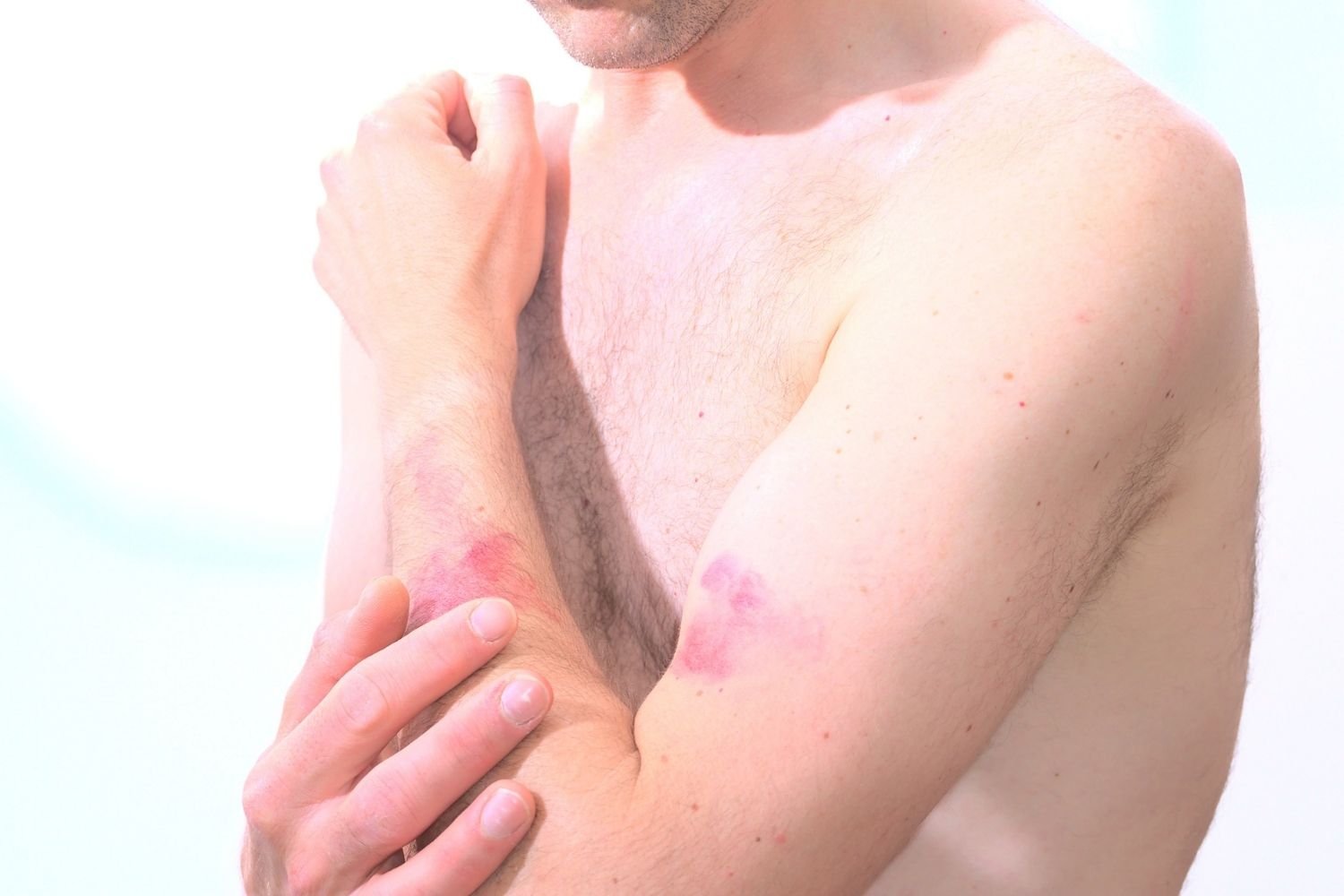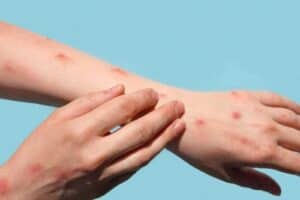No cases reported in South Africa yet. Genital lesions 'a unique aspect' of this outbreak.

The National Institute for Communicable Diseases (NICD) says while no cases of monkeypox have been registered in South Africa, travellers may be at risk.
Lessons learnt during global Covid-19 outbreak
“The implications for South Africa are that the risk of importation of monkeypox is a reality as lessons learnt from Covid-19 have illustrated that outbreaks in another part of the world can fast become a global concern,” explained NICD Executive Director, Prof Adrian Puren.
There are currently no monkeypox cases in South Africa.
The World Health Organisation has not yet recommended any travel restrictions, but it’s currently working with the affected countries to limit transmission and determine sources of exposure.
Travellers take note
Puren advised people entering South Africa to report any illness during travel or upon return from endemic areas to a healthcare professional, including information about all recent travel, immunisation history and contact with any known cases.
“Residents and travellers to endemic countries should avoid contact with sick animals that could harbour monkeypox virus, such as rodents, marsupials, and primates, and should refrain from eating or handling wild game,” advises Puren.
Thorough patient history is essential to rule out other differential diagnoses, including malaria.
At least 140 monkeypox cases reported worldwide
On 13 May 2022, the WHO was notified of two laboratory-confirmed cases and one probable case of monkeypox, from the same household, in the United Kingdom.
Two days later, four additional laboratory-confirmed cases were reported amongst sexual health services attendees presenting with a vesicular rash illness in gay men.
Since then, 15 countries have collectively reported more than 140 cases.
Countries reporting monkeypox cases: May 2022
| Country | Number of cases |
| Australia | 2 |
| Belgium | 3 |
| Canada | 22 |
| Canary Islands | 2 |
| France | 1 |
| Germany | 1 |
| Israel | 1 |
| Italy | 3 |
| Netherlands | 1 |
| Portugal | 34 |
| Spain | 50 |
| Sweden | 1 |
| Switzerland | 1 |
| United Kingdom | 20 |
| United States of America | 2 |
| Total | 144 |
Unique aspect of this outbreak
Men aged between 20-55 years account for more than 70% of the cases which have been detected through sexual health services.
But most cases are mild and present with lesions on the genitalia or peri-genital areas. Additional symptoms include rash, fever, painful lymph nodes, and oral ulcers.
Possible transmission between sexual partners may occur due to contact during sex with infectious skin and mucosal (including oral) lesions, as sexual transmission of monkeypox has not yet been proven.
Genital lesions have previously been uncommon and reflect a unique aspect of this outbreak.
Multiple introductions of the virus to the UK
The first case in the current outbreak was a traveller who returned to the United Kingdom from Nigeria, a monkeypox endemic area, on 4 May 2022.
Clinicians confirmed that the patient had monkeypox three days later.
Investigations have not been able to link that case to any of the other cases detected to date, which suggests multiple introductions of monkeypox into the United Kingdom and other countries.
Those cases have potentially gone undetected until now.
A preliminary genome sequence from a confirmed Portuguese case confirms the virus is the West African strain and is closely related to viruses associated with the exportation of monkeypox from Nigeria to the United Kingdom, Israel, and Singapore during 2018-2019.
Milder cases of monkeypox that go undetected, represent a risk of person-to-person transmission.
“There is likely to be little immunity to the infection in those travelling or otherwise exposed, as endemic disease is usually geographically limited to parts of West and Central Africa,” explained Puren.
Monkeypox vs smallpox
Although monkeypox, which is related to smallpox (which has been eradicated), sporadically causes small outbreaks, transmission is believed to be inefficient as close contact is required.
Therefore the current outbreak is unlikely to progress to being a global emergency.
NICD SA
Monkeypox is usually a self-limiting illness, and most cases will recover within a few weeks without treatment.
However, severe disease may be observed in young children, pregnant women, and individuals who are immunocompromised.
Historically, vaccination against smallpox is shown to be protective against monkeypox.
Contact tracing is ongoing in the countries reporting cases, and contacts are being assessed based on their level of exposure and followed up through active or passive surveillance for 21-days from the date of last exposure to a case.
Smallpox vaccination is being offered to higher risk contacts, but global vaccine availability is a challenge.
Western reporting on monkeypox slammed
Meanwhile, the Foreign Press Association Africa has slammed Western reporting of the outbreak. Despite the cases being reported in UK, US and parts of Europe, media houses in those countries are predominantly using images of African people to depict the disease.
“We condemn the perpetuation of this negative stereotype that assigns calamity to the African race, and privilege and immunity to the other races,” said the African press body.
NOW READ: New monkeypox cases take UK total to 20






